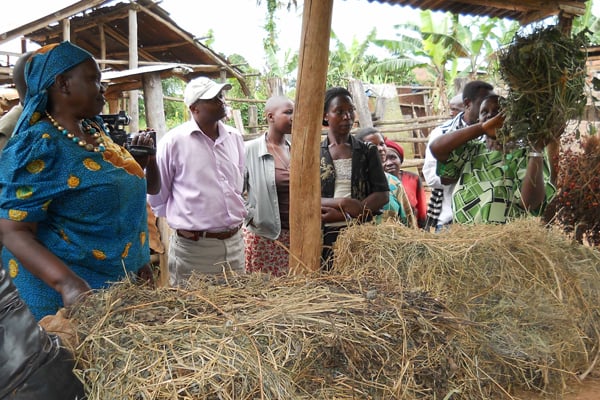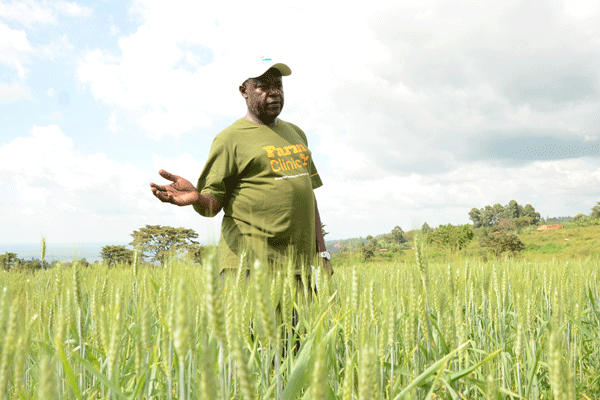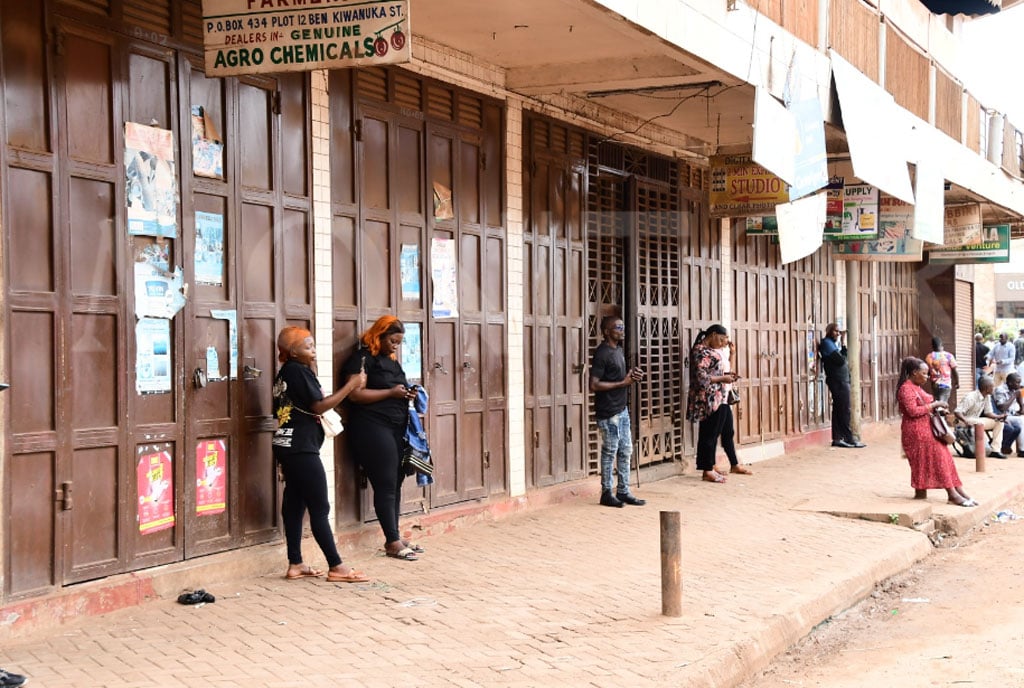Prime
Namulonge hosts Seeds of Gold Farm Clinic today

Dr Jolly Kabiriizi (left) teaches farmers in Masaka how to make hay. Photo / Michael J Ssali
What you need to know:
- The Seeds of Gold Farm Clinics have become a forum where experts and farmers meet and share information about the most pressing problems facing the agriculture industry. The initiatives have been steadily gaining traction, attracting farmers and agribusiness enthusiasts from all corners of the country, proving to be indeed a one-stop shop where the country’s key food producers, majority who are smallholder farmers, actively interact with experts.
Sustainability of the dairy sector will be at the heart of today’s Seeds of Gold Farm Clinic at the National Livestock Resources Research Institute (NaLIRRI) in Nakyesasa.
The rising global human population and climate change is an increasingly challenging dilemma which calls for improved dairy production.
Experts at NaLIRRI are emphasising practices that effectively and sustainably deal with waste management.
Dr Moses Mwesigwa, the programme Leader in dairy research at the institute anticipates a complete value chain with zero waste.
Today’s Farm Clinic will therefore, focus on issues which help farmers utilise waste in an integrated manner.
According to Dr Mwesigwa, NaLIRRI is running systems that utilise very low concentration of methane in the barns and utilises all the dairy farm wastes in an integrated manner.
The institute is equipped with a hydrogen cycle which addresses concerns regarding wastewater.
Dung, which is one of the key wastes in dairy farms is used in carbonic acid production. This platform cleans biogas by ‘scrubbing’ carbon-dioxide for use in locomotive batteries. The same carbonic acid is useful as a preservative in drinks.
Relatedly, it presents the opportunity for bio-electricity production. NaLIRRI already produces biogas that runs a 75 KVA generator.
NaLIRRI has a solar-dried slurry production platform where experts extract solids which produce aquaculture, poultry and piggery feed with crude protein of 7 percent compared to maize with a crude protein of 7.5 percent. This produces dry manure which can be packed and transported easily.
Research shows that dried manure with solar heated air results in a slight decrease in protein content (from 42 to 41 per cent), a decrease in pH (from 8.4 to 6.6)
The liquid slurry manure at NaLIRRI already produces 10,000 litres per week which acts as fertiliser.
Dr Mwesigwa explains that NaLIRRI is destined to produce organic bio-pesticides from liquid slurry. This platform is destined to produce various liquid and solid detergents, shampoos and shower gels, among others, from slurry as the base ingredient.

Farmers will learn proper methods of milking at the Farm Clinic. Photo / Shabibah Nakirigya
“Solar drying of manure is an effective means of converting manure into a value added product while reducing the environmental and health problems that are associated with current disposal options,” Dr Mwesigwa says.
Forage conservation
Forages can be conserved to feed livestock during periods of shortage, caused by limited pasture growth or inadequate pasture conditions, or as a supplement. Conserved forages can take the form of hay, haylage or baleage, and silage.
At the institute’s forage gene bank, research is being carried out to conserve eight indigenous lablab varieties to avert competition between humans and livestock.
The lablab varieties are for pharmaceutical, grazing biomass, silage, and those that produce mainly seed for monogastric feeding.
NaLIRRI has the largest herbarium ‘conservation bank’ in the region containing close to 800 indigenous species of pasture, legume and fodder varieties.
The institute also manages close to 100 acres of forage multiplication fields for sunflower, sun hemp, Chloris Guyana, maize and calliandra.
Experts will focus on management issues to help farmers keep in touch with the latest developments.
Other platforms
The institute is also helping reduce the cost of importing Viking Jerseys. Viking Jerseys are purebred, medium-sized cows that produce milk containing the highest levels of fat and protein percentages.
NaLIRRI has embarked on an invitro and in-vivo research of embryo transfer in Viking Jersey females. This kind of research will quickly multiply the pure Viking Jersey herd in the country. According to data from the institute, they produce 653 embryos each at $100 (Shs370,000).

A trainer explains how to mulch banana. Photo / Michael J Ssali
Dr Mwesigwa says that in just three months, this can save the country about Shs235m which would have been used to import embryos from Denmark.
Feed processing
NaLIRRI has two silo lines each for 50 tonnes, one for oil seed such as soya and the other for dry seeds such as maize soya or sunflower seed. The factory extracts cooking oil, cake, pellets, and meal.
The main idea is to produce a product that will prevent aflatoxins contamination in feeds while in the gardens.
A hydroponic platform (when completed) shall be producing three tonnes of high protein feed every day.
Apart from pasteurisation, the institute has plans of producing ice creams as well as anti-cancer yoghurt.
Trainers
At the Farm Clinic, experts from the participating organisations will educate, inform, teach and nourish farmers’ hunger and quest for knowledge on cushioning themselves from conditions that impede their optimal agricultural productivity, among others. Trainers include, Dr Moses Mwesigwa (dairy research), Dr Julius Sserumaga (beef and meats research), Dr Moses Dhikusooka (vaccinology research), Dr Patrice Kasangaki (entomology research) and Dr Jessica Nakayima (biosciences research).
Today:
Event: 29th Seeds of Gold Farm Clinic
Where: Namulonge
Enterprise: Dairy, banana,
Entry: Free (inclusive meals)
Time: 7am
Date: Today
Sponsors: Chinese Embassy, Bank of Uganda,
Stanbic Bank, NSSF and Zoetis.




